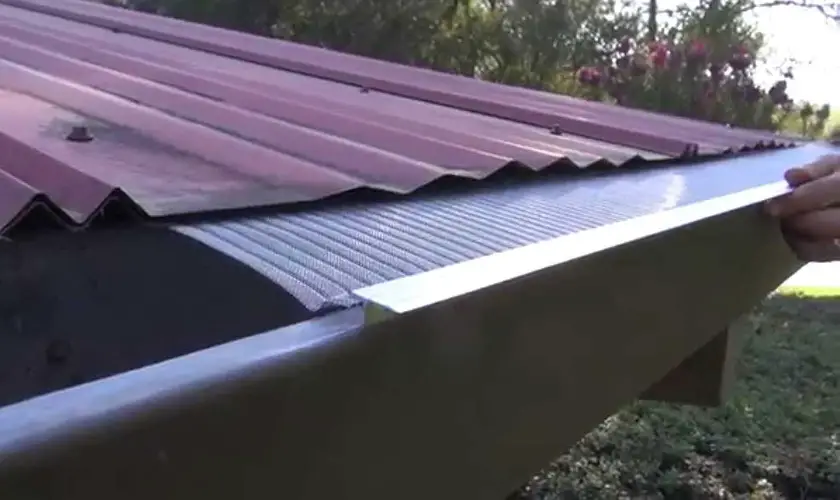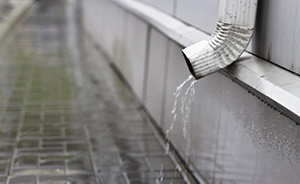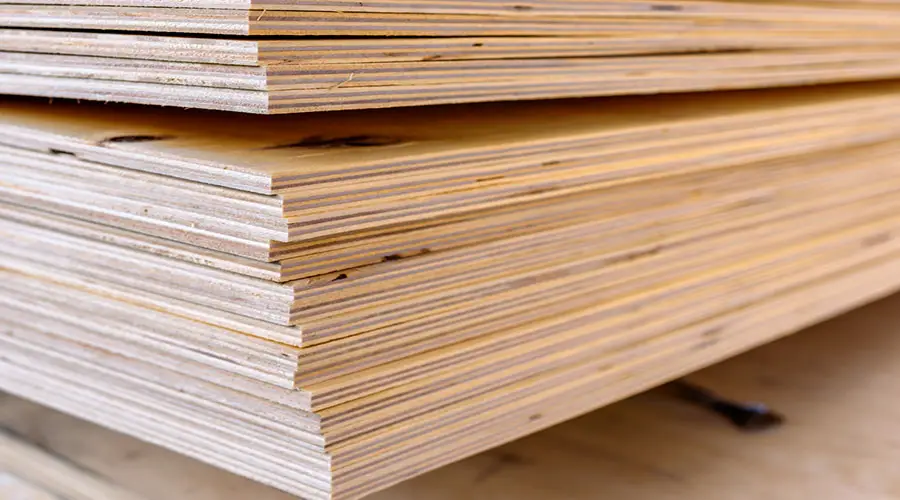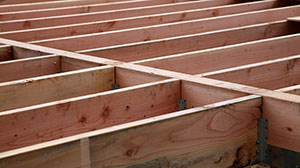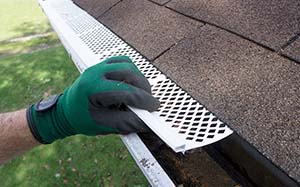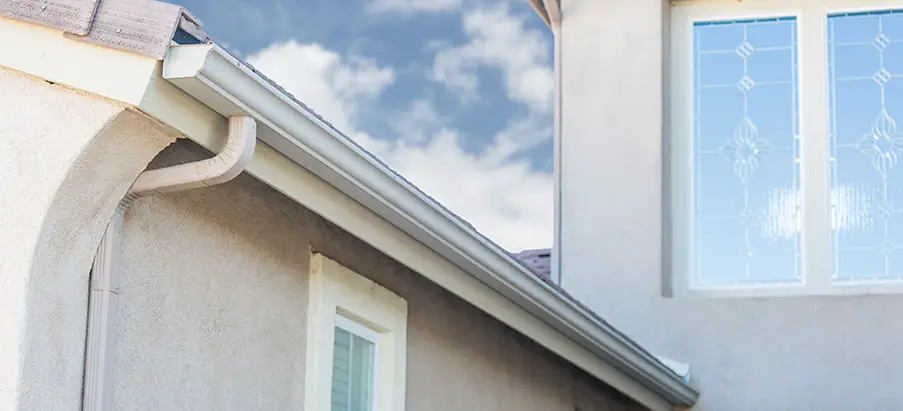
What’s your top priority when you flag off a new residential construction? For most new homeowners, gutters don’t rank high on the list of installations. Unfortunately, new homeowners find out too late that they need gutter systems.
Before you build your house, know what building codes apply in your area. The building code says you don’t have to install gutters in a single-family home for some regions such as South Carolina, Texas, Oregon, and Kansas. You decide whether you need gutters.
Many home buyers find out too late that their new home may not require gutters. The truth is that building codes in many areas don’t require gutters. Whether or not a new home needs gutters depends mainly on soil and foundation types.
These factors determine if your new home requires a gutter system.
- Location of your house
- Local weather patterns
- The slope of your roof
- If you have a basement
- If you have a catchment area around the home
Technically, you CAN build a house without gutters. The International Residential Code 2006 Chapter 8 has a few guidelines that should help decide the necessity of gutters.
“In areas where expansive or collapsible soils are known to exist, all dwellings shall have a controlled method of water disposal from roofs that will collect and discharge roof drainage to the ground surface at least 5 feet (1524 mm) from foundation walls or to an approved drainage system.”
IT SAYS IN SECTION R801.3 ABOUT ROOF DRAINAGE-:
It explains why you need a gutter system.
“Saturated expansive or collapsible soils can lead to foundation failures because their additional loads are imposed on the foundation wall. To minimize the potential for the soil adjacent to the foundation wall to become saturated due to roof drainage, the code requires that the roof drain 5 feet (1524 mm) from the foundation.”
Recommended Reading: Are Gutter Guards Worth It or a Waste of Money? We Ask the Pros
Are Builders Required To Install Gutters?
Despite the importance of gutters, builders may not install gutters on your new home. Private builders, primarily, operate with their own set of rules. Some will opt out of building gutters under the pretext that it is unnecessary. In reality, they most likely don’t install gutters to leapfrog the costs.
Even though they don’t put the gutters in the building plan or install them, you can agitate your builder to install gutters.
These are some benefits you will miss if you don’t have gutters.
Firm Foundation
Houses built with proper grading or on high ground may not need gutters. However, if your home doesn’t have good drainage or grading, you may need a gutter system to prevent erosion. Over time, the uneven surface extends to the foundation. You might notice foundation settlement, uneven floors, or cracked walls costing you thousands in repair costs.
Dry Basements
When you build a house without gutters, rainwater runs from your roof and settles around your home. Over time, if poor drainage exists, the weight of the water and wet soil weaken your foundation and start seeping into the basement through cracks in basement walls.
In most instances, the downpour may not be that severe to cause basement flooding. However, the leakage promotes an environment for mold and mildew.
Aesthetic Appeal
Rainwater affects wood. Without gutters, stormwater runoff can cause damage to facia boards and siding, making your exterior lose its aesthetic appeal.
Water might also accumulate on the sides, causing wood rot and putting your house at risk of collapsing.
Dry Landscape
If you have a beautifully manicured lawn or garden, you’d want to keep it as pristine as possible. That is only possible all year if the lawn isn’t flooded by dirty roof run-off. Water pooling around the house and flowing in all directions to parts you’d like to stay clean or dry is something you can avoid.
Can I Install Gutters?
Local laws don’t bind builders to install gutters unless a professional contract requires it. However, that doesn’t mean you can’t install gutters in a new home.
You have two gutter installation options.
- Hire a professional gutter installation service
- DIY the gutter installation
Hiring a professional to install gutters in a new home is better than DIY. A gutter installation service has the right equipment to evaluate the house model, budget requirement, and safety equipment to install a lasting gutter.
However, with the right skills and protective gear, you can save installation labor costs and go the DIY way.
What Happens If Your Home Doesn’t Have Gutters?
Not having gutters can damage your home’s exterior and foundation. If you have evaluated your home and determined that you need gutters, you must know the possible long-term risks of not installing them.
Loss Or Reduction Of Resale Value
A house that sustains water damage during the rainy season loses a substantial chunk of the real estate market.
Sure, it’s a new home. Still, a home needs to retain some value or appreciation. You won’t make a return on investment with a house with damaged walls and the risk of a flooding basement.
The slightest change can harm the homes’ value in the long run.
Weak Roof
A weakened roof is likely to happen over a long period. When it rains, water settles on the side of your new home. If the water stagnates on the roof, you will have roof rot, mold, and mildew. Over time, the water destroys the fascia, soffit, and shingles.
Short Home Lifespan
The damaged home will likely need lots of repairs to keep it stable. If your area has heavy rains, a gutterless new home means your home keeps taking years of damage on the side. It may not be visible at first. But once the damage begins showing, you might need complete overhauls to ensure the home is strong enough for the next few years.
These three components will eventually need restoration, eating into your maintenance budget.
How Do You Know If Your House Needs Gutters?
The rainy season is the best time to know if your house needs gutters. Here are tell-tale signs that should make you install gutters in your new home.
Flooded Basement
A flooded basement is a sign that water is either pooling at the sides or that the foundation is buckling under the weight of heavier soil.
If The Edge To Your Roof Is Too High Or Too Close To The Walls
Modern housing has found a way to go around the need for gutters. It might lean more towards design but building a roof that edges farther away from the walls ensures rainwater falls farther from the house.
If Your Location Has Heavy Rains Or Heavy Foliage
Gutter systems in a new home in a foliage-heavy or rain-prone area are better investments than yearly basement repair. Check your location’s residential code to find out their policy on gutter installation.
Final Thoughts
A builder is not obligated to install a gutter in your new home. However, you can take the matter into your own hands and call a professional gutter installation service to do it for you. Alternatively, contact a home inspector to advise whether you need gutters for your new home.


